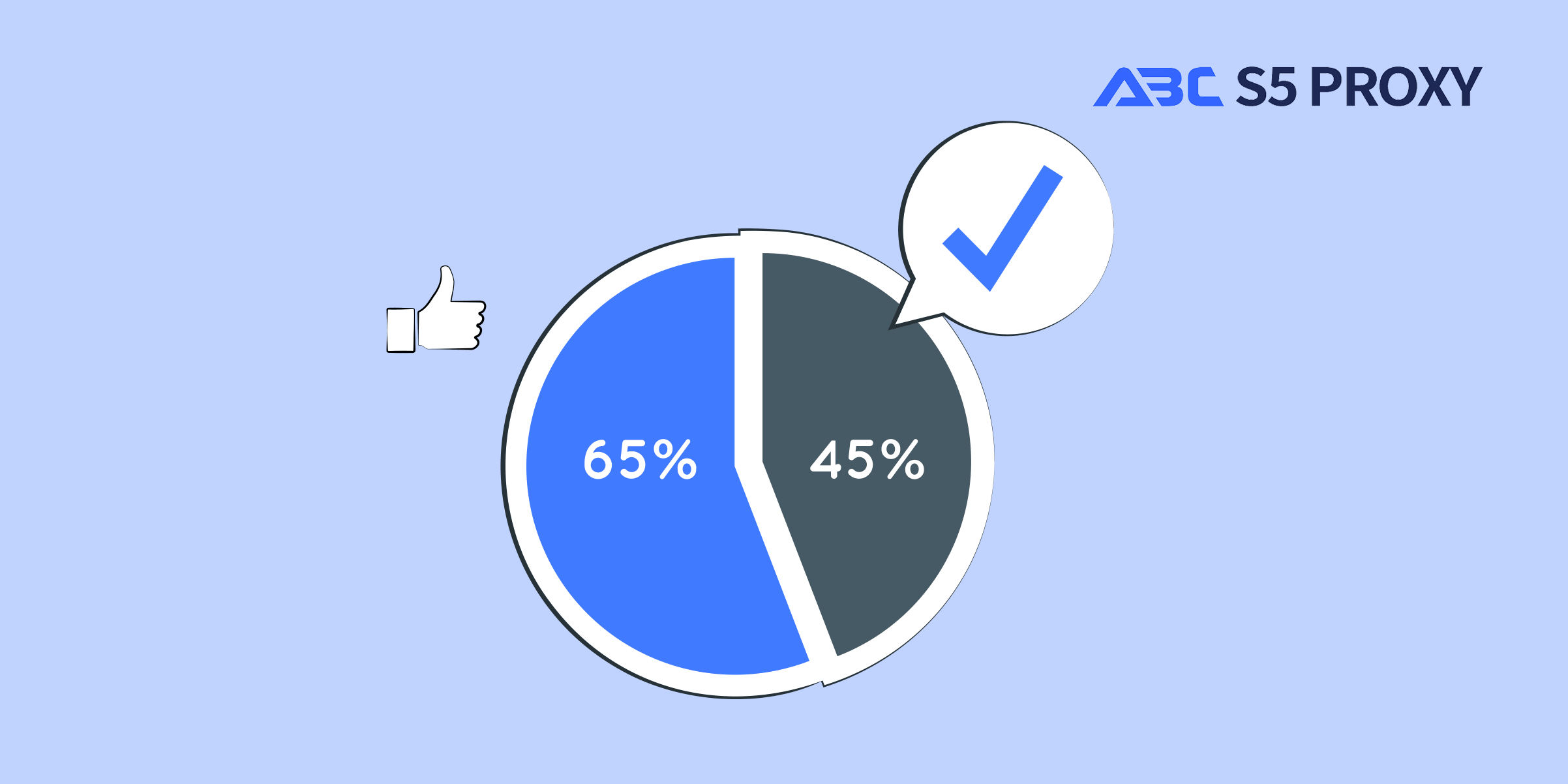Residential Proxies
Allowlisted 200M+ IPs from real ISP. Managed/obtained proxies via dashboard.

Proxies
Residential Proxies
Allowlisted 200M+ IPs from real ISP. Managed/obtained proxies via dashboard.
Residential (Socks5) Proxies
Over 200 million real IPs in 190+ locations,
Unlimited Residential Proxies
Use stable, fast, and furious 700K+ datacenter IPs worldwide.
Static Residential proxies
Long-lasting dedicated proxy, non-rotating residential proxy
Dedicated Datacenter Proxies
Use stable, fast, and furious 700K+ datacenter IPs worldwide.

Web Unblocker
View content as a real user with the help of ABC proxy's dynamic fingerprinting technology.
Proxies
API
Proxy list is generated through an API link and applied to compatible programs after whitelist IP authorization
User+Pass Auth
Create credential freely and use rotating proxies on any device or software without allowlisting IP
Proxy Manager
Manage all proxies using APM interface

Proxies
Residential Proxies
Allowlisted 200M+ IPs from real ISP. Managed/obtained proxies via dashboard.
Starts from
$0.77/ GB
Residential (Socks5) Proxies
Over 200 million real IPs in 190+ locations,
Starts from
$0.045/ IP
Unlimited Residential Proxies
Use stable, fast, and furious 700K+ datacenter IPs worldwide.
Starts from
$79/ Day
Rotating ISP Proxies
ABCProxy's Rotating ISP Proxies guarantee long session time.
Starts from
$0.77/ GB
Static Residential proxies
Long-lasting dedicated proxy, non-rotating residential proxy
Starts from
$5/MONTH
Dedicated Datacenter Proxies
Use stable, fast, and furious 700K+ datacenter IPs worldwide.
Starts from
$4.5/MONTH
Knowledge Base
English
繁體中文
Русский
Indonesia
Português
Español
بالعربية

Mobile Proxies vs. Residential Proxies: A Comprehensive Comparison
In the realm of online security and privacy, proxies play a crucial role in safeguarding one's digital footprint. Two common types of proxies that often come up in discussions are mobile proxies and residential proxies. While both serve the purpose of masking the user's IP address and providing anonymity online, there are significant differences between the two. In this article, we will delve into the distinctions between mobile proxies and residential proxies to help you understand which option suits your needs best.
Mobile proxies, as the name suggests, are proxies that route your internet traffic through mobile devices such as smartphones or tablets. These proxies obtain their IP addresses from mobile networks, making them appear as regular mobile users to websites and online services. Mobile proxies are known for their high level of anonymity and reliability, as they are less likely to be detected and blocked by websites compared to other types of proxies.
On the other hand, residential proxies are IP addresses assigned by Internet Service Providers (ISPs) to homeowners. When you use a residential proxy, your internet traffic is routed through a residential IP address, making it seem like a regular home network connection. Residential proxies are prized for their authenticity and legitimacy, as they are indistinguishable from genuine residential users, making them highly trusted by websites and online platforms.
When it comes to speed and reliability, the choice between mobile proxies and residential proxies can make a significant difference in your browsing experience. Mobile proxies, being connected through mobile networks, may sometimes suffer from fluctuations in speed and connectivity, depending on the network strength of the mobile device. On the other hand, residential proxies, leveraging traditional home network connections, often offer more stable and consistent speeds, making them a preferred choice for tasks that require uninterrupted internet access.
In terms of anonymity and security, both mobile proxies and residential proxies provide a certain level of protection for your online activities. Mobile proxies are known for their high degree of anonymity, as they are less likely to be traced back to the user. However, residential proxies offer a higher level of security due to their genuine residential IP addresses, making them ideal for activities that require maximum privacy and security.
Considering the compatibility and usage scenarios, the choice between mobile proxies and residential proxies often depends on the specific needs of the user. Mobile proxies are well-suited for tasks that require frequent IP changes and high anonymity, such as web scraping or social media management. On the other hand, residential proxies are more suitable for activities that demand long-term stability and trustworthiness, such as e-commerce transactions or market research.
In conclusion, the difference between mobile proxies and residential proxies lies in their origin, functionality, speed, reliability, anonymity, security, compatibility, and ideal usage scenarios. While both types of proxies serve the purpose of safeguarding your online presence, understanding their distinctions can help you make an informed decision based on your specific requirements. Whether you opt for the high anonymity of mobile proxies or the reliability of residential proxies, choosing the right proxy type can enhance your online security and privacy significantly.
Featured Posts
Popular Products
Residential Proxies
Allowlisted 200M+ IPs from real ISP. Managed/obtained proxies via dashboard.
Residential (Socks5) Proxies
Over 200 million real IPs in 190+ locations,
Unlimited Residential Proxies
Use stable, fast, and furious 700K+ datacenter IPs worldwide.
Rotating ISP Proxies
ABCProxy's Rotating ISP Proxies guarantee long session time.
Residential (Socks5) Proxies
Long-lasting dedicated proxy, non-rotating residential proxy
Dedicated Datacenter Proxies
Use stable, fast, and furious 700K+ datacenter IPs worldwide.
Web Unblocker
View content as a real user with the help of ABC proxy's dynamic fingerprinting technology.
Related articles

How does the ChatGPT RAG example improve information processing capabilities
Analyze the actual application scenarios of ChatGPT combined with Retrieval Augmented Generation (RAG) technology, explore its value in knowledge integration and data acquisition, and understand how abcproxy provides underlying support for the RAG system.

How does Best Socks5 Proxy ensure anonymous network needs
This article explores the core value of Socks5 proxy in anonymous networks and analyzes how abcproxy high anonymous proxy meets diverse security needs.

How to remove website access restrictions
This article analyzes the technical principles and mainstream solutions of website access restrictions, and explores the core role of proxy IP in bypassing regional blocking and anti-crawling mechanisms. abcproxy provides multiple types of proxy IP services to help you break through network restrictions efficiently.